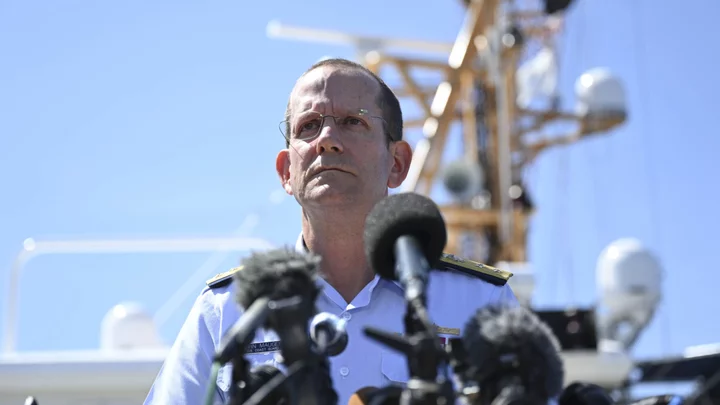There was no miracle ending for the story that gripped so much of the world this week.
Four days after OceanGate Expedition's 22-foot submersible went missing on its way to tour the wreckage of the RMS Titanic, the U.S. Coast Guard announced that the vessel had suffered a deadly implosion.
USCG Rear Adm. John W. Mauger said June 22 that the families of the five people aboard were immediately notified once officials and experts had concluded the craft was lost.
"I can only imagine what this has been like for them," Mauger said. "I hope that this discovery provides some solace during this difficult time."
OceanGate, whose CEO and founder Stockton Rush was piloting the June 18 expedition, called the five men who were presumed dead "true explorers who shared a distinct spirit of adventure, and a deep passion for exploring and protecting the world's oceans."
The Titan began its 2.4-mile trip below the ocean's surface from the Canadian expedition ship the Polar Prince on the morning of June 18, about 435 miles south of St. John's, Newfoundland.
The control center lost contact with the sub roughly an hour and 45 minutes into the dive.
A joint search operation involving the U.S. Coast Guard, U.S. Navy, Canadian Coast Guard and a number of private vessels commenced, ultimately traversing thousands of miles of ocean as time ticked away, the Titan's four-day oxygen supply providing the harshest of deadlines for a successful rescue operation.
Unfortunately the results of the oceanic voyage were deadly, with reports claiming the submarine imploded just hours after the dive began four days prior.
Meaning some senior officials suspected they weren't searching for an intact vessel, though this wasn't made public.









